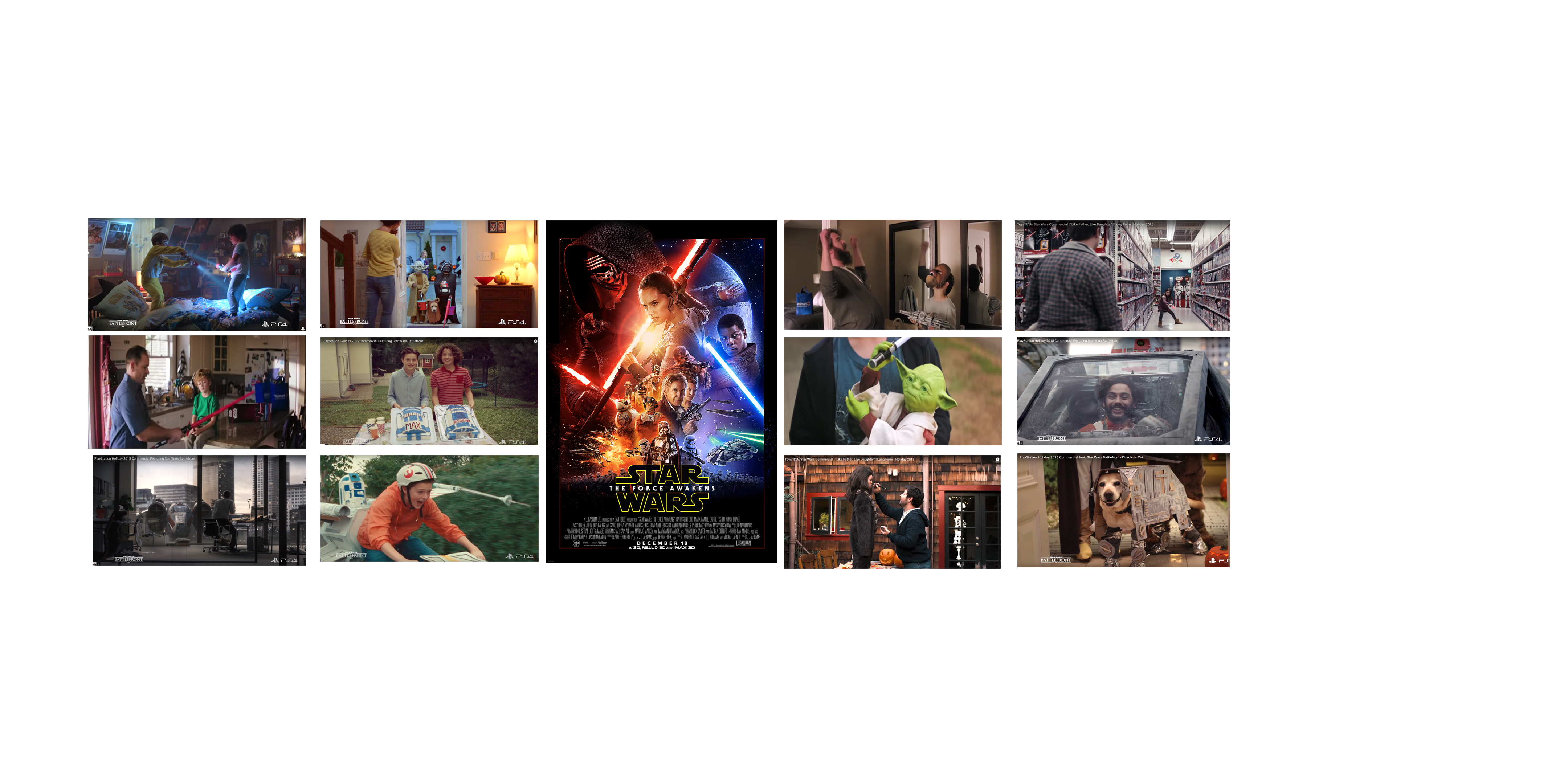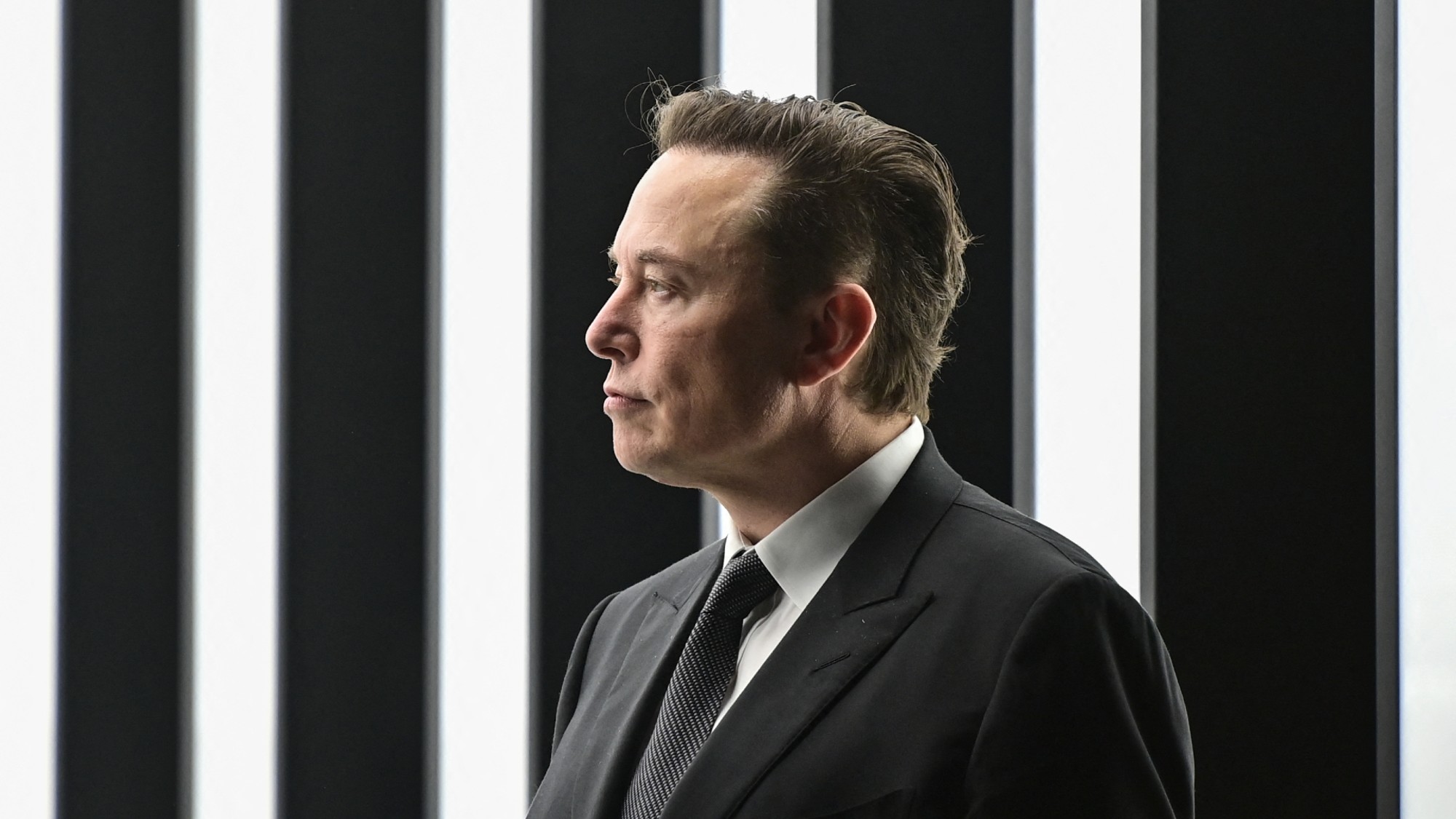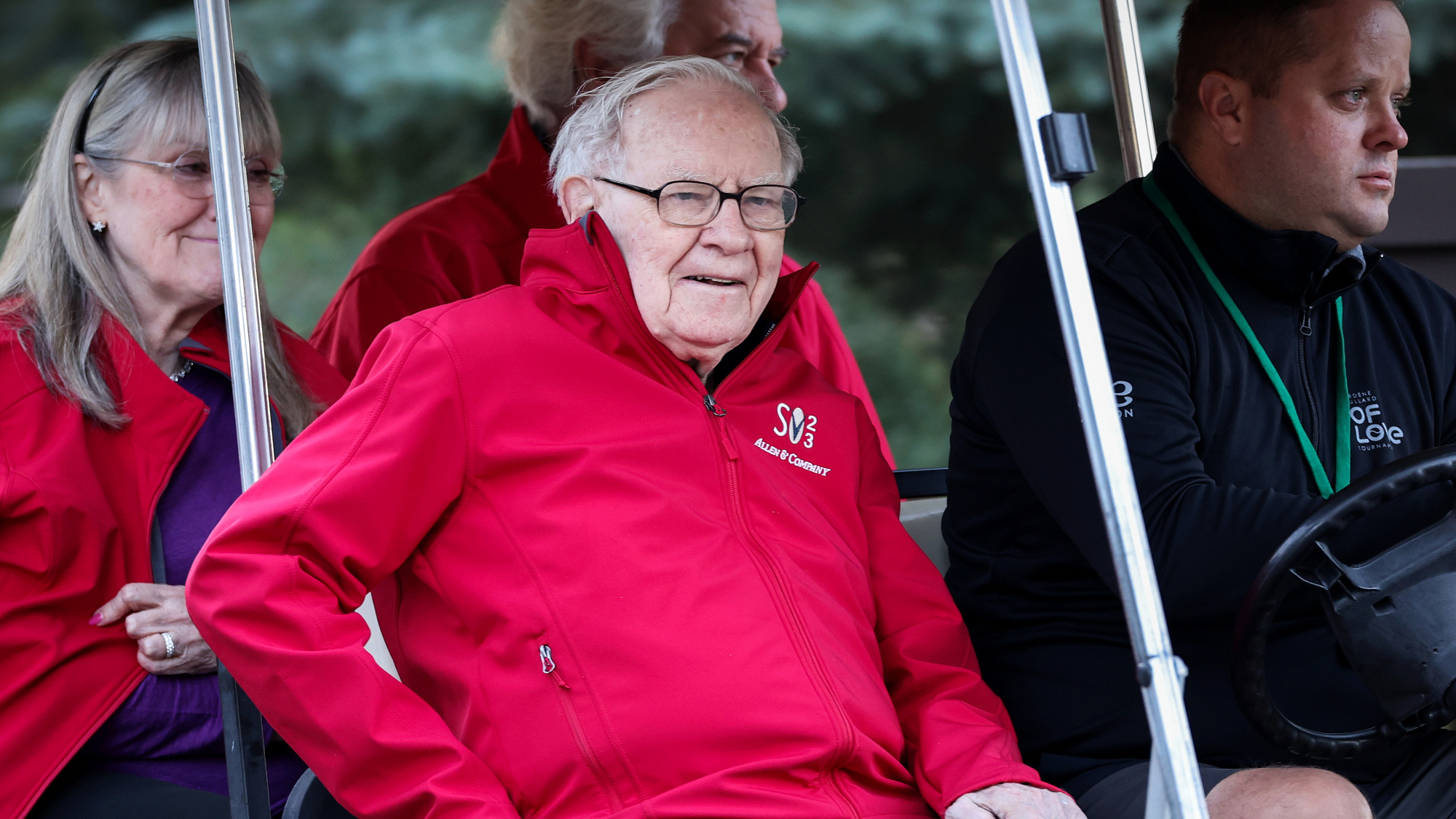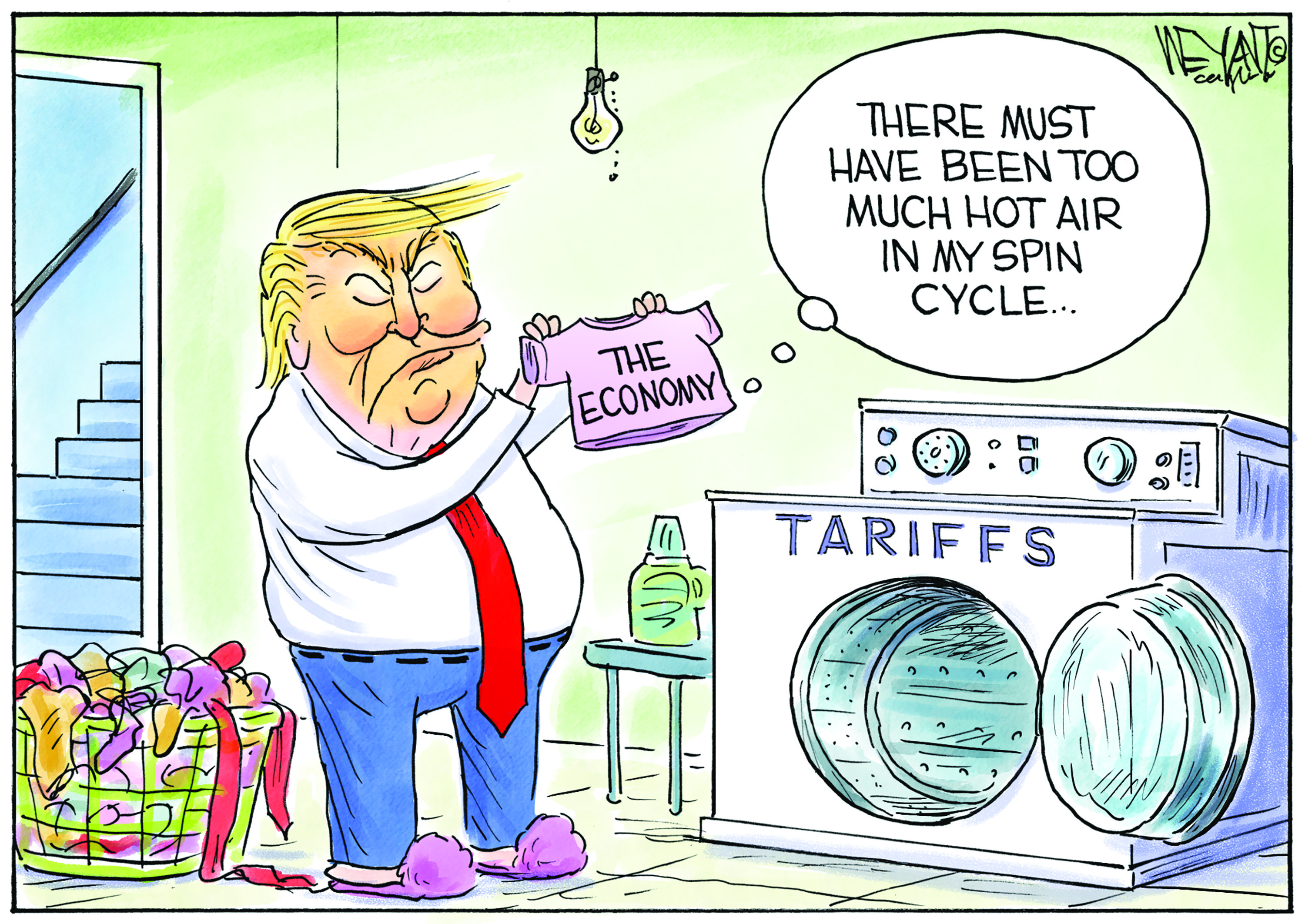The brilliance of Star Wars' marketing campaign: It's all about you
How the year's biggest movie made every fan feel like it was made just for them


There have been plenty of big movies released in 2015 — including four of the 10 highest-grossing movies of all time. But as big as Jurassic World, Furious 7, Avengers: Age of Ultron, and Minions turned out to be on a monetary scale, Star Wars: The Force Awakens and the frenzied anticipation accompanying it are something entirely different.
Star Wars is for everyone. You don't get to be a multibillion-dollar franchise without a healthy dose of mass appeal. But it's also deeply, uniquely personal to its millions and millions of fans. And Disney has wisely recognized that what separates Star Wars from Avengers and Transformers and Hunger Games is the fandom's intensely personal feeling of connection to the franchise. Maybe you first watched Star Wars when it hit theaters in 1977. Maybe you first watched Star Wars when the remastered "Special Edition" came out in 1997. Maybe you first watched it on VHS in 1985, or Laserdisc in 1993, or DVD in 2004, or Blu-Ray in 2011. Or maybe your memories of the movies are secondary to your experience with the dozens of Star Wars video games, or hundreds of Star Wars novels, or thousands of Star Wars toys.
But it doesn't really matter how you found Star Wars. If you're a fan, it's because you felt some point of connection, to a movie or a toy or a game you simply made up in your head. For the vast majority, it was sometime during their childhood, which can only increase the sense of wonder. Who wouldn't feel some sense of personal stake in the series?
Subscribe to The Week
Escape your echo chamber. Get the facts behind the news, plus analysis from multiple perspectives.

Sign up for The Week's Free Newsletters
From our morning news briefing to a weekly Good News Newsletter, get the best of The Week delivered directly to your inbox.
From our morning news briefing to a weekly Good News Newsletter, get the best of The Week delivered directly to your inbox.
This is all the more remarkable when you look at the aggrieved backlash to George Lucas' prequel trilogy — intense enough that it inspired an entire documentary titled The People vs. George Lucas. So how did Star Wars: The Force Awakens win the people back? By politely ushering Lucas off the stage and picking up the story at the end of the original trilogy again, with the characters longtime Star Wars fans cared about in the first place.
"It's true. All of it. The Dark Side. The Jedi. They're real," says Harrison Ford in a trailer for The Force Awakens. As he delivers the monologue, we see image after image that riffs on fans' nostalgia for the original trilogy. The Millennium Falcon zooming through space. A sinister figure, clad in black armor, wielding a red lightsaber. A fleet of X-Wings taking on a fleet of TIE fighters in an aerial dogfight. It's just new enough to be thrilling, and just familiar enough to tug at your heartstrings. This is the Star Wars you guys love, the trailer implicitly promises. Or more simply — to paraphrase Ford in the first Force Awakens trailer — you're home.
That's what Star Wars fandom feels like, especially to the fans who have long since grown up and had families of their own. As Carrie Fisher said in a recent interview, Star Wars has become "a family thing. You're going to watch your kid watch it, and wonder how he reacts."
And that's why Disney's savvy approach to marketing Star Wars: The Force Awakens can be summed up by the tagline of Walmart's extremely buzzy ad campaign: "A new generation of fans is born."
A farmer tells his young son that Luke Skywalker, the greatest hero in the galaxy, also started as a farmboy. A woman uses the principles of The Force to teach her daughter yoga. A grandfather defends his bathrobe by comparing himself to Obi-Wan Kenobi. And a mother and her young daughter discuss Princess Leia's no-nonsense attitude in the context of modern feminism. In every spot, the implicit message is the same: Star Wars isn't just a franchise. It's a tradition, passed from generation to generation like a treasured heirloom.
Walmart isn't alone in recognizing the unique potency of this phenomenon. If anything, Sony's marketing campaign for the Playstation game Star Wars: Battlefront is even more explicit in its attempt to make you feel like Star Wars belongs to you. Take a look at this commercial, which introduces an office drone as he sullenly contemplates a battered R2-D2 toy from his childhood — only to be rescued from the drudgery of his normal life by an X-Wing:
And here's where I back away from my measured tone of journalistic detachment and out myself as a complete sucker for all this stuff. I knew I was being manipulated, and I still got chills when I watched that Playstation commercial. Call it a big-budget Hollywood variation on the Proust madeleine effect. I was a kid once. I pretended a flashlight was a lightsaber. I trick-or-treated in a Yoda costume. And somewhere in a dark corner of my parents' basement, there's a cardboard box full of banged-up Star Wars action figures. Your experiences might not be exactly the same as mine, but if that commercial works at all, it works because Star Wars played some specific and important part of your life too. To those who don't buy into Star Wars, this probably sounds ridiculous, but I suspect those who do buy into Star Wars will understand the feeling I'm talking about. After all, we don't choose what means something to us. We just respond to it.
And it's not just marketing savvy — it's the core of the franchise itself. In a larger sense, this sort of wistful wish fulfillment has been a part of Star Wars from the very beginning. The marketing for Star Wars: The Force Awakens is just drawing on the same power that made the original movie such an unexpected and powerful hit. Take a look at one of the most iconic scenes from the original movie, as Luke watches the binary sunset on Tatooine:
Everything in that brief scene — the key shift to a POV shot of the sunset from Luke's perspective, and the now-legendary score, engineered to make the audience feel the same intense yearning that Luke feels — is designed to help the audience see the galaxy from a point of view that anyone, but especially a child, could understand. From the very beginning, Star Wars wasn't just a rollicking space adventure spanning an entire galaxy's worth of planets and characters. It was small and emotional and personal. It was, in the end, about you.
Sign up for Today's Best Articles in your inbox
A free daily email with the biggest news stories of the day – and the best features from TheWeek.com
Scott Meslow is the entertainment editor for TheWeek.com. He has written about film and television at publications including The Atlantic, POLITICO Magazine, and Vulture.
-
 How could Tesla replace Elon Musk?
How could Tesla replace Elon Musk?Today's Big Question CEO is 'greatest asset and gravest risk'
-
 Warren Buffet announces surprise retirement
Warren Buffet announces surprise retirementspeed read At the annual meeting of Berkshire Hathaway, the billionaire investor named Vice Chairman Greg Abel his replacement
-
 Today's political cartoons - May 5, 2025
Today's political cartoons - May 5, 2025Cartoons Monday's cartoons - A shrinking economy, Medicaid cuts, and more
-
 Walter Isaacson's 'Elon Musk' can 'scarcely contain its subject'
Walter Isaacson's 'Elon Musk' can 'scarcely contain its subject'The latest biography on the elusive tech mogul is causing a stir among critics
-
 Welcome to the new TheWeek.com!
Welcome to the new TheWeek.com!The Explainer Please allow us to reintroduce ourselves
-
 The Oscars finale was a heartless disaster
The Oscars finale was a heartless disasterThe Explainer A calculated attempt at emotional manipulation goes very wrong
-
 Most awkward awards show ever?
Most awkward awards show ever?The Explainer The best, worst, and most shocking moments from a chaotic Golden Globes
-
 The possible silver lining to the Warner Bros. deal
The possible silver lining to the Warner Bros. dealThe Explainer Could what's terrible for theaters be good for creators?
-
 Jeffrey Wright is the new 'narrator voice'
Jeffrey Wright is the new 'narrator voice'The Explainer Move over, Sam Elliott and Morgan Freeman
-
 This week's literary events are the biggest award shows of 2020
This week's literary events are the biggest award shows of 2020feature So long, Oscar. Hello, Booker.
-
 What She Dies Tomorrow can teach us about our unshakable obsession with mortality
What She Dies Tomorrow can teach us about our unshakable obsession with mortalityThe Explainer This film isn't about the pandemic. But it can help viewers confront their fears about death.